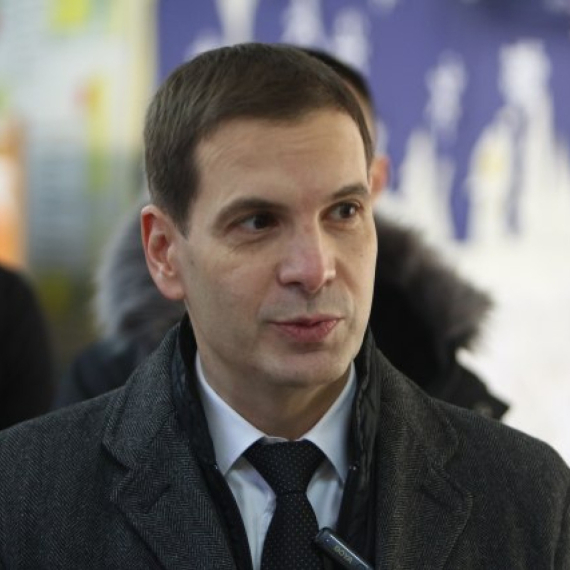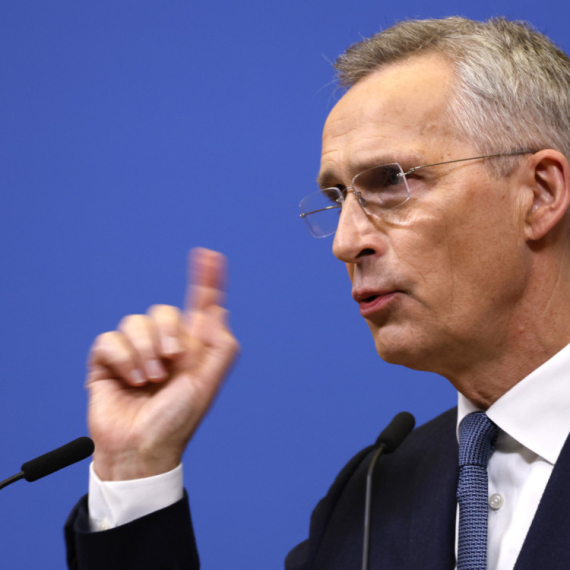PM: Serbia not choosing between Russia and West
PM Vojislav Koštunica says Serbia needs a stable government that will have a unanimous policy on Kosovo.
Tuesday, 25.03.2008.
09:05

PM Vojislav Kostunica says Serbia needs a stable government that will have a unanimous policy on Kosovo. The Democratic Party of Serbia (DSS) leader told the public broadcaster RTS last night that parliamentary elections had been called for this reason, following the unilateral declaration of Kosovo's independence. PM: Serbia not choosing between Russia and West Kostunica did not directly answer the question whether he would cooperate with the Radicals after the vote, or whether he would participate in a government with the same partners. He said he would cooperate with the parties that support his party's key principles - "Kosovo Is Serbia," membership in the EU with Kosovo as the country's integral part, economic development, and the fight against corruption and organized crime. Commenting on the statement by Democratic Party (DS) officials, that the new prime minister would be from their party, Kostunica said "it means that to certain parties, power is more important than political beliefs." “The question why Serbia needed presidential elections when negotiations were being concluded is justified,” he said, and reiterated his criticism of former coalition partners, the Democratic Party (DS) and G17 Plus, saying their stories of self isolation were the dirtiest form of propaganda. According to Kostunica, statements that Serbia would isolate itself if it did not succumb to EU pressure were “nonsense”, because, using the same logic, one could interpret Norway’s vote against EU entrance as a vote for self-isolation. “There is neither isolation nor the possibility of Serbia being exposed to sanctions. Self-isolation doesn’t exist because no state ever has done that,” he added. “Things are being dramatized and presented as an either-or choice, as if we have to choose between Russia and the West. That is nonsense, that either-or is the most vulgar and worst form of propaganda,” Kostunica said. The prime minister added that he backed the "dispute" with the EU and the countries that had recognized Kosovo's independence, which could lead to those countries withdrawing or reconsidering their decision, and later agreeing to new talks on the province. Kostunica once again said Serbia should not sign the Stabilization and Association Agreement (SAA) until Brussels stated whether it recognized Serbia within its existing borders. According to Kostunica, Brussels and Belgrade had many issues to resolve, including "the illegal deployment of the EULEX mission to Kosovo." "All that can be discussed, rather than only saying: Here, I'll sign right away, I have sharpened my pen...," Kostunica stressed and added that it was in Serbia's interest to cooperate not only with the EU, but also with Russia. In his words, membership in the EU should be "left aside," because Serbia would join the EU only "in many, many years." Kostunica once again stressed that he saw no reason for Serbia to join NATO. He recalled that parliament had adopted a resolution on the protection of Serbia's sovereignty and territorial integrity, and stressed that the document, among other things, envisaged Serbia's military neutrality. Vojislav Kostunica (FoNet, archive)
PM: Serbia not choosing between Russia and West
Koštunica did not directly answer the question whether he would cooperate with the Radicals after the vote, or whether he would participate in a government with the same partners.He said he would cooperate with the parties that support his party's key principles - "Kosovo Is Serbia," membership in the EU with Kosovo as the country's integral part, economic development, and the fight against corruption and organized crime.
Commenting on the statement by Democratic Party (DS) officials, that the new prime minister would be from their party, Koštunica said "it means that to certain parties, power is more important than political beliefs."
“The question why Serbia needed presidential elections when negotiations were being concluded is justified,” he said, and reiterated his criticism of former coalition partners, the Democratic Party (DS) and G17 Plus, saying their stories of self isolation were the dirtiest form of propaganda.
According to Koštunica, statements that Serbia would isolate itself if it did not succumb to EU pressure were “nonsense”, because, using the same logic, one could interpret Norway’s vote against EU entrance as a vote for self-isolation.
“There is neither isolation nor the possibility of Serbia being exposed to sanctions. Self-isolation doesn’t exist because no state ever has done that,” he added.
“Things are being dramatized and presented as an either-or choice, as if we have to choose between Russia and the West. That is nonsense, that either-or is the most vulgar and worst form of propaganda,” Koštunica said.
The prime minister added that he backed the "dispute" with the EU and the countries that had recognized Kosovo's independence, which could lead to those countries withdrawing or reconsidering their decision, and later agreeing to new talks on the province.
Koštunica once again said Serbia should not sign the Stabilization and Association Agreement (SAA) until Brussels stated whether it recognized Serbia within its existing borders.
According to Koštunica, Brussels and Belgrade had many issues to resolve, including "the illegal deployment of the EULEX mission to Kosovo."
"All that can be discussed, rather than only saying: Here, I'll sign right away, I have sharpened my pen...," Koštunica stressed and added that it was in Serbia's interest to cooperate not only with the EU, but also with Russia.
In his words, membership in the EU should be "left aside," because Serbia would join the EU only "in many, many years."
Koštunica once again stressed that he saw no reason for Serbia to join NATO. He recalled that parliament had adopted a resolution on the protection of Serbia's sovereignty and territorial integrity, and stressed that the document, among other things, envisaged Serbia's military neutrality.


























































Komentari 18
Pogledaj komentare